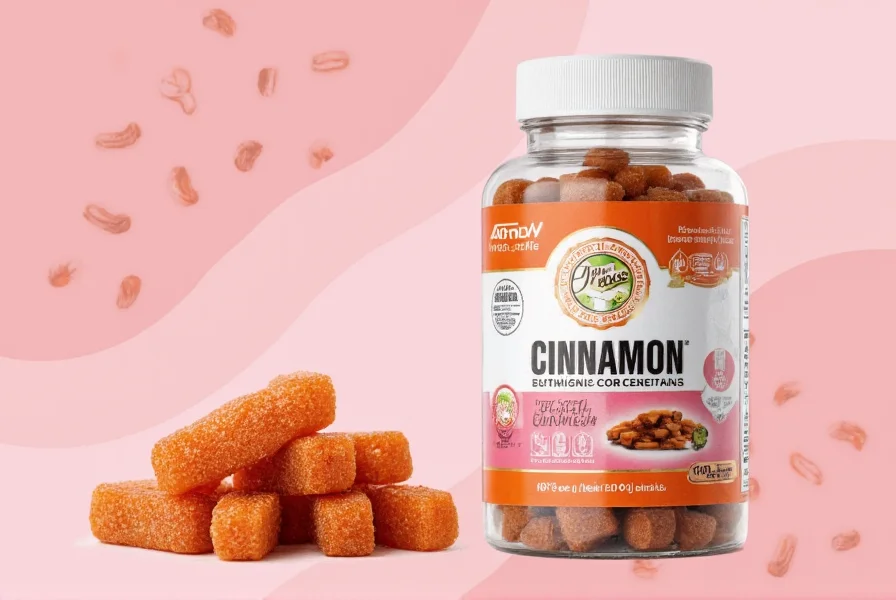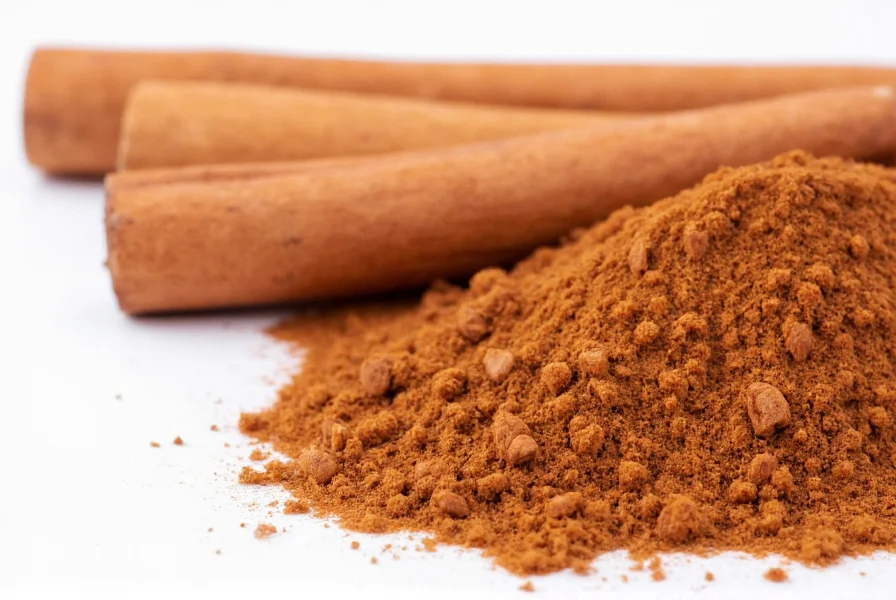For centuries, cinnamon has been valued not just as a culinary spice but for its potential health properties. Modern research has turned attention to cinnamon dietary supplements as concentrated sources of bioactive compounds that may offer specific health benefits. Unlike culinary use where you might sprinkle a pinch on your oatmeal, supplements provide standardized doses of cinnamon's active components.
Understanding Cinnamon Supplement Types
Not all cinnamon supplements are created equal. The two primary varieties used in supplements differ significantly in composition and safety profile:
| Characteristic | Ceylon Cinnamon | Cassia Cinnamon |
|---|---|---|
| Common Name | "True" cinnamon | Chinese cinnamon |
| Coumarin Content | Very low (0.004%) | High (1-13%) |
| Typical Supplement Form | Capsules, extracts | Powder, capsules |
| Safety for Long-term Use | Generally safe | Limited due to coumarin |
Coumarin, a natural compound found in higher concentrations in Cassia cinnamon, can potentially cause liver issues with prolonged high-dose consumption. This makes Ceylon cinnamon supplements (Cinnamomum verum) the preferred choice for regular use, despite being more expensive. When selecting a cinnamon dietary supplement for blood sugar support, check the label for the specific cinnamon variety.

Scientific Evidence for Health Benefits
Research on cinnamon supplements has primarily focused on metabolic health. A comprehensive review published in Nutrition Research analyzed multiple clinical trials and found that cinnamon supplementation demonstrated modest but statistically significant improvements in fasting blood glucose levels among individuals with metabolic concerns.
Additional potential benefits supported by varying levels of evidence include:
- Antioxidant properties that combat oxidative stress
- Potential anti-inflammatory effects
- Support for healthy cholesterol levels
- Antimicrobial properties
It's crucial to understand that while promising, most studies show modest effects that complement rather than replace conventional treatments. The effectiveness of cinnamon supplements for blood sugar management varies significantly between individuals, with some experiencing notable benefits while others see minimal changes.
Recommended Dosage Guidelines
Determining the appropriate cinnamon supplement dosage depends on several factors including the cinnamon type, concentration, and individual health status. Research suggests these general parameters:
- Ceylon cinnamon supplements: 500-2000mg daily appears safe for most adults
- Cassia cinnamon supplements: Limit to 500-1000mg daily and avoid prolonged continuous use
- Standardized extracts: Follow product-specific dosing (typically 120-250mg of concentrated extract)
For those specifically researching cinnamon supplement dosage for diabetes management, most clinical trials used 1-2 grams daily of Cassia cinnamon, but the American Diabetes Association doesn't currently recommend cinnamon as a standard treatment. Always consult with a healthcare provider before starting any new supplement regimen, especially if you have existing health conditions or take medications.
Safety Considerations and Potential Interactions
While generally recognized as safe in culinary amounts, concentrated cinnamon supplements require more caution. Key safety considerations include:
- Coumarin toxicity: Cassia cinnamon contains high coumarin levels that may affect liver function with prolonged use
- Blood thinning: Cinnamon may enhance effects of anticoagulant medications
- Blood sugar interactions: May amplify effects of diabetes medications, potentially causing hypoglycemia
- Pregnancy considerations: Limited safety data for high-dose supplementation during pregnancy
Individuals with liver conditions should exercise particular caution with Cassia cinnamon supplements. Those taking medications for diabetes should monitor blood sugar closely when adding cinnamon supplements to their regimen, as the combination of cinnamon supplement and diabetes medication could potentially lower blood sugar too much.

Selecting Quality Cinnamon Supplements
With the dietary supplement market largely unregulated, choosing a quality cinnamon product requires careful evaluation. When searching for the best cinnamon supplement for blood sugar support, consider these factors:
- Transparency: Reputable brands clearly state cinnamon species (Ceylon vs. Cassia)
- Third-party testing: Look for NSF, USP, or ConsumerLab verification seals
- Coumarin content: Ceylon products should specify low coumarin levels
- Ingredient purity: Avoid supplements with unnecessary fillers or additives
- Dosage information: Clear labeling of active compounds per serving
Reading customer reviews of cinnamon dietary supplements can provide insight, but prioritize scientific evidence over anecdotal reports. The most effective cinnamon supplements typically contain standardized extracts with consistent levels of active compounds rather than simple powdered bark.
Realistic Expectations for Supplement Users
It's essential to maintain realistic expectations when using cinnamon supplements. While research shows promise for certain applications, these supplements work best as part of a comprehensive health approach rather than standalone solutions. The potential benefits of cinnamon supplements for metabolic health typically develop gradually over weeks or months of consistent use.
Those wondering how long to take cinnamon supplements should understand that most studies showing benefits involved continuous use for 8-12 weeks. However, for Cassia cinnamon products, limiting continuous use to 6-8 weeks with breaks in between is advisable due to coumarin concerns. Ceylon cinnamon supplements may be used more continuously given their lower coumarin content.
Remember that individual responses to cinnamon supplements vary significantly. What works well for one person may have minimal effect for another. This variability explains why some users report dramatic improvements in blood sugar management with cinnamon supplements while others notice no change.
Frequently Asked Questions
What's the difference between Ceylon and Cassia cinnamon supplements?
Ceylon cinnamon (Cinnamomum verum) contains significantly lower levels of coumarin (0.004%) compared to Cassia cinnamon (1-13%). This makes Ceylon safer for regular, long-term supplementation. Ceylon has a more delicate flavor and is typically more expensive, while Cassia is stronger and more common in grocery stores. For daily cinnamon supplement use, Ceylon is generally recommended.
How much cinnamon supplement should I take daily for blood sugar support?
Research suggests effective doses range from 120mg to 2,000mg daily, depending on the cinnamon type and concentration. For Ceylon cinnamon supplements, 500-2,000mg daily appears safe for most adults. For Cassia cinnamon, limit to 500-1,000mg daily due to higher coumarin content. Always start with the lowest effective dose and consult your healthcare provider, especially if you have diabetes or take medications.
Can cinnamon supplements replace diabetes medication?
No, cinnamon supplements should not replace prescribed diabetes medications. While some studies show modest improvements in blood sugar levels with cinnamon supplementation, the effects are not consistent enough to serve as a replacement for conventional diabetes treatment. Cinnamon may complement prescribed treatments but should only be used alongside medication under medical supervision due to potential interactions.
How long does it take for cinnamon supplements to show effects?
Most clinical studies showing benefits from cinnamon supplements involved continuous use for 8-12 weeks. Individual responses vary significantly—some people may notice effects within a few weeks, while others may not experience noticeable changes. Consistent daily use is important, as benefits typically develop gradually. If using Cassia cinnamon, limit continuous use to 6-8 weeks due to coumarin concerns, while Ceylon can generally be used more continuously.
Are there any safety concerns with long-term cinnamon supplement use?
Long-term safety depends on the cinnamon type. Cassia cinnamon contains high coumarin levels that may potentially affect liver function with prolonged daily use. Ceylon cinnamon has much lower coumarin and is generally considered safer for extended use. Other considerations include potential interactions with blood thinners and diabetes medications. Those with liver conditions should exercise caution and consult healthcare providers before starting any cinnamon supplement regimen.











 浙公网安备
33010002000092号
浙公网安备
33010002000092号 浙B2-20120091-4
浙B2-20120091-4